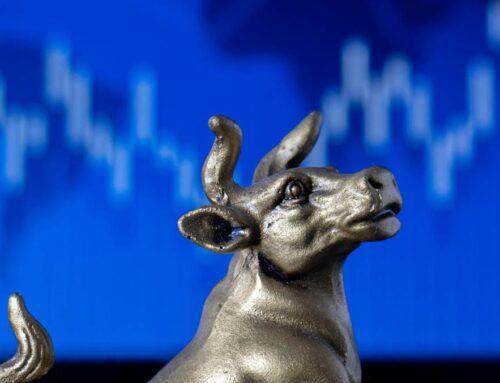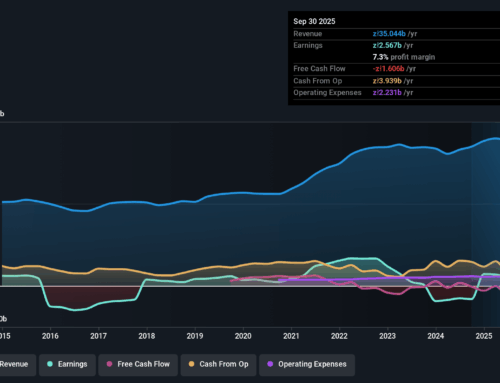Investing in ResMed (NYSE:RMD) five years ago would have delivered you a 21% gain
November 16, 2025
ResMed Inc. (NYSE:RMD) shareholders might be concerned after seeing the share price drop 15% in the last quarter. On the bright side the share price is up over the last half decade. In that time, it is up 16%, which isn’t bad, but is below the market return of 86%.
Let’s take a look at the underlying fundamentals over the longer term, and see if they’ve been consistent with shareholders returns.
While the efficient markets hypothesis continues to be taught by some, it has been proven that markets are over-reactive dynamic systems, and investors are not always rational. One flawed but reasonable way to assess how sentiment around a company has changed is to compare the earnings per share (EPS) with the share price.
During five years of share price growth, ResMed achieved compound earnings per share (EPS) growth of 16% per year. The EPS growth is more impressive than the yearly share price gain of 3% over the same period. Therefore, it seems the market has become relatively pessimistic about the company.
The graphic below depicts how EPS has changed over time (unveil the exact values by clicking on the image).
We know that ResMed has improved its bottom line lately, but is it going to grow revenue? You could check out this free report showing analyst revenue forecasts.
When looking at investment returns, it is important to consider the difference between total shareholder return (TSR) and share price return. Whereas the share price return only reflects the change in the share price, the TSR includes the value of dividends (assuming they were reinvested) and the benefit of any discounted capital raising or spin-off. So for companies that pay a generous dividend, the TSR is often a lot higher than the share price return. We note that for ResMed the TSR over the last 5 years was 21%, which is better than the share price return mentioned above. And there’s no prize for guessing that the dividend payments largely explain the divergence!
ResMed shareholders are up 5.1% for the year (even including dividends). But that was short of the market average. On the bright side, that’s still a gain, and it’s actually better than the average return of 4% over half a decade This could indicate that the company is winning over new investors, as it pursues its strategy. Most investors take the time to check the data on insider transactions. You can click here to see if insiders have been buying or selling.
But note: ResMed may not be the best stock to buy. So take a peek at this free list of interesting companies with past earnings growth (and further growth forecast).
Please note, the market returns quoted in this article reflect the market weighted average returns of stocks that currently trade on American exchanges.
Have feedback on this article? Concerned about the content? Get in touch with us directly. Alternatively, email editorial-team (at) simplywallst.com.
This article by Simply Wall St is general in nature. We provide commentary based on historical data and analyst forecasts only using an unbiased methodology and our articles are not intended to be financial advice. It does not constitute a recommendation to buy or sell any stock, and does not take account of your objectives, or your financial situation. We aim to bring you long-term focused analysis driven by fundamental data. Note that our analysis may not factor in the latest price-sensitive company announcements or qualitative material. Simply Wall St has no position in any stocks mentioned.
Search
RECENT PRESS RELEASES
Related Post



